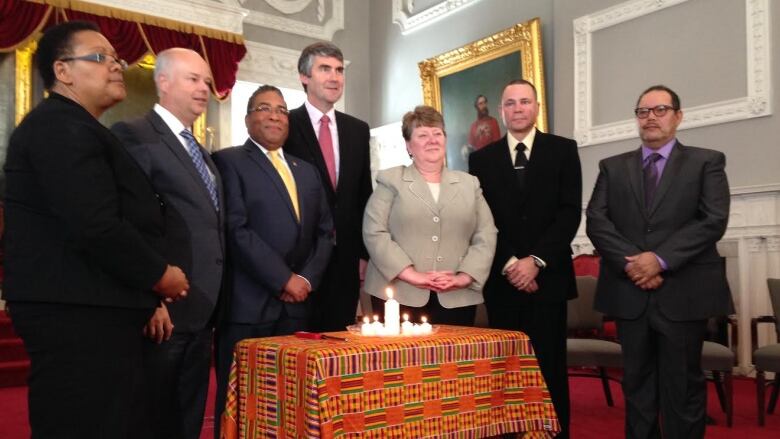Home for Colored Children inquiry organizers want protection for witnesses
People who testify at NSHCC inquiries would be protected under legislation proposed today.

The group designing the public inquiry into the abuse suffered by children housed at the Home for Colored Children want those who testify to be protected.
Members of the Nova Scotia Home for Colored Children Restorative Inquiry Design Group have asked the Nova Scotia government to afford legal protection to anyone who speaks at the inquiry.
That kind of protection is offered in at least six other provinces.
On Monday, Nova Scotia's Minister of Justice Lena Diab tabled an amendment to the province's Public Inquiries Act which would protect witnesses from prosecution or against lawsuits.
"This provision is meant to help insure that people participating in an inquiry can speak without fear of their testimony being used in a criminal or civil proceeding," said Diab.
"Public inquiries are about finding the truth. To be effective they must have the means necessary to get all the facts."
Diab says it's likely the bill won't be passed until the fall session of the legislature.
Jennifer Llewellyn, the lawyer helping the design group, says introducing the proposed law now dovetails nicely with plans for the inquiry.
"It sets us up well to have it passed very quickly in the fall," she said."We couldn't start the sort of hearings that would put people in a position of participating first thing in the fall until this passed but there's lots of work that can be done as the commission starts."
'We're looking at finding the truth'
Tony Smith, the former resident who has spearheaded the group, says immunity will help convince people to talk more freely.
People who used to live in the Halifax orphanage allege that they were subjected to physical, psychological and sexual abuse over several decades up until the 1980s.
"This is a restorative inquiry where we're not looking to lay blame, he said. "We're looking at finding the truth and buildings relationships."
Smith says some witnesses he's already approached have expressed reluctance to testify.
"There are some people, because a lot us former residents, they've had problems with the law," Smith said. "They're afraid that if they do speak, it'll be like a court of law they have to be very concerned about what they speak."
"So we want them to be able to have them speak in a way that is less harmful for them and they can speak their truth," he said.
With files from the Canadian Press